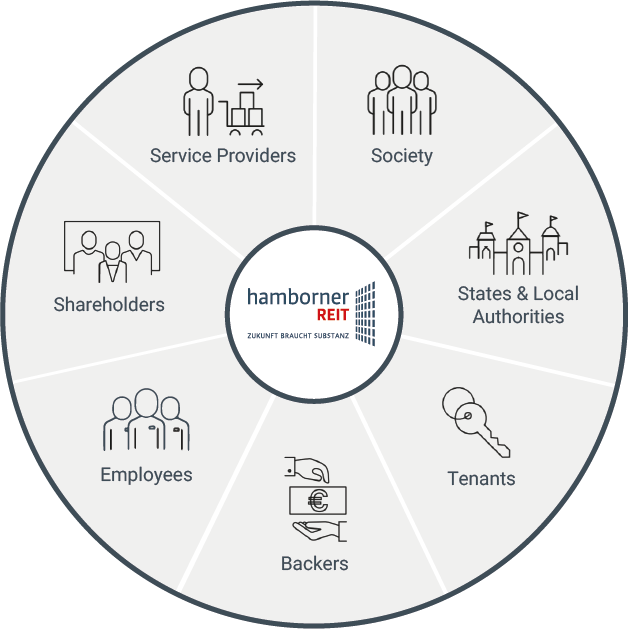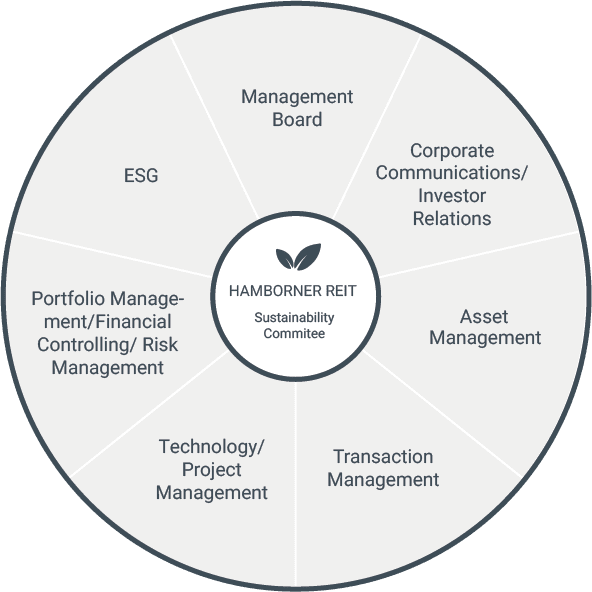- Hamborner Reit AG
-
- Portfolio
-
- INVESTOR RELATIONS
-
- News
- SUSTAINABILITY
-
Sustainability
 Sustainability Strategy
Sustainability StrategyFind out more about our strategy and our activities in the field of sustainability
-
- Career











